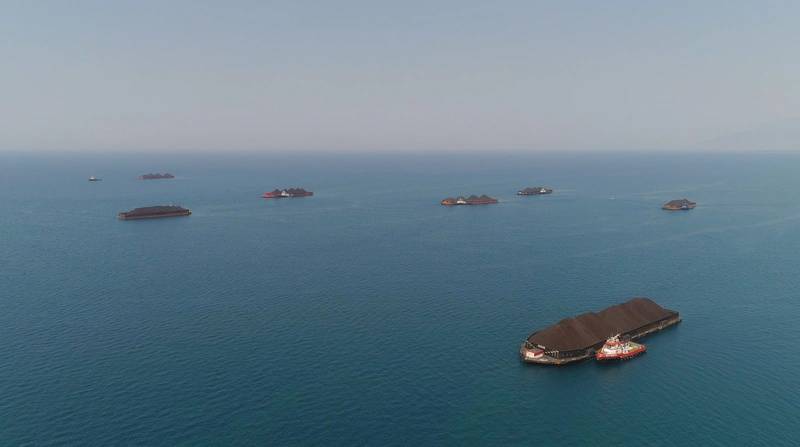Indonesia to Improve Coal Delivery Checks as Export Ban Weighs on Economy
Indonesia's state utility Perusahaan Listrik Negara (PLN) said on Friday that together with the energy ministry it was strengthening a coal delivery monitoring system to ensure enforcement of domestic sales rules and energy security.
The world's biggest thermal coal exporter introduced an export ban on Jan. 1 as coal inventories at local power plants were at critically low levels, amid low compliance with a so-called Domestic Market Obligation (DMO).

Under the DMO, miners must sell 25% of their output to the local market with a price cap of $70 per tonne for power plants, below the current market price.
Coal deliveries to local power plants will be monitored throughout the supply chain by PLN and the energy ministry's mineral and coal department, and miners would receive automated warnings for any late shipments.
"Hopefully this will help PLN coal supply security," chief executive Darmawan Prasodjo said.
A senior minister on Thursday said 37 export vessels loaded with coal would be allowed to leave and that miners who met their 2021 DMO would be prioritized for exports.
Eighteen of those vessels have been given clearance by the energy ministry, carrying about 1.3 million tonnes of coal, according to a transport ministry document reviewed by Reuters.
That represents only a fraction of the normal export volume from Indonesia, which shipped 30 million tonnes of coal in the month of January in 2021 and 2020, energy ministry data showed.
Sixteen other vessels were carrying coals from miners who had not met the DMO and had therefore yet to be cleared, while three were still loading, the ministry document said.
"If the energy and mineral resources ministry haven't cleared them, there won't be port clearance," transport ministry official Mugen Suprihatin Sartoto said on Friday.
DAMAGING EFFECT
While Indonesia has started easing its coal export ban, the abrupt suspension may have already left a scar on the sector and the wider economy, highlighting the risk of regulatory uncertainty and impacting Indonesia's trade balance.
"The most important and immediate implication of the coal export ban relates to Indonesia's current account balance, which we already expect to shift to a deficit this year," Nomura said in a note on Thursday.
Indonesia in the third quarter of 2021 posted a 1.5% of gross domestic product current account surplus, the biggest in 12 years. The central bank has estimated a full-year current account balance at between a surplus of 0.3% of GDP, and a deficit of 0.5% of GDP.
Coal comprised 14% of total goods exports in 2021, so should the export ban apply during all of January, Nomura said, total goods exports could be reduced by around $4 billion, enough to shift the trade balance to a deficit from a surplus.
"In addition, we think the concerns expressed by key trading partners Japan and Korea are also likely to carry significant weight, given the Indonesian government's efforts to attract foreign direct investment," Nomura said.
The ban easing would be a credit positive for miners that have likely complied with their DMO requirements, because they could sell coal overseas at prices 2.5 times greater than domestic prices, said Maisam Hasnain, an analyst with Moody's Investor Service.
Moody's has previously said that the ban "highlights the evolving regulatory uncertainty for the sector".
(Reporting by Fransiska Nangoy Additional reporting Bernadette Christina Munthe and Gayatri Suroyo; Editing by Martin Petty)
